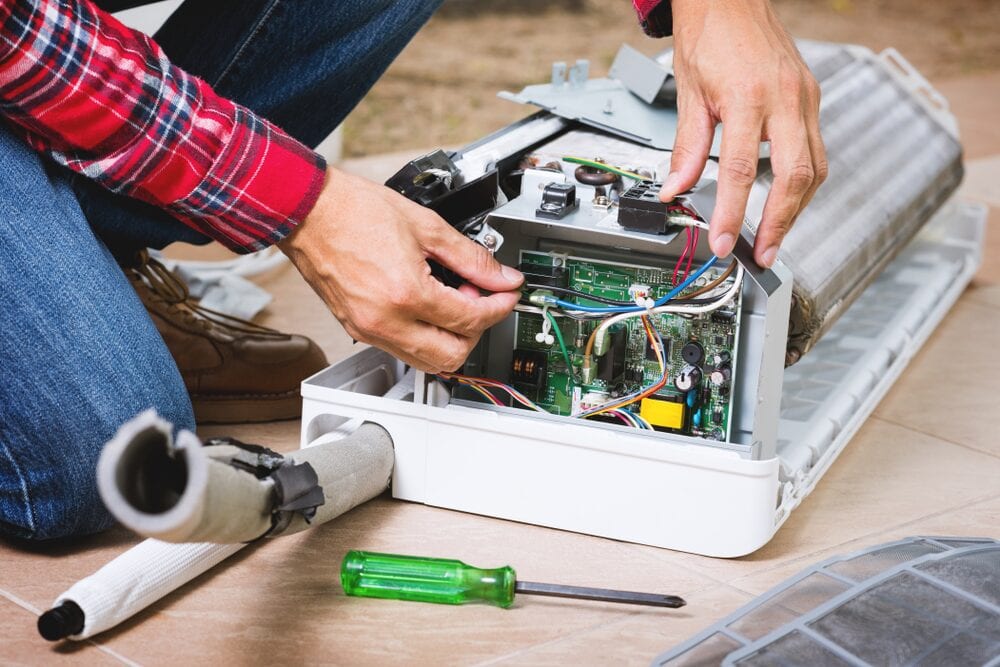The way Select the Best HVAC Contractor

Picking the best HVAC contractor is a crucial step in guaranteeing your home's heating and cooling systems operate efficiently and effectively. Whether you are setting up a new system, upgrading an outdated one, or merely maintaining your current setup, the contractor you select can make all the difference. With so many choices available, it can be overwhelming to identify a qualified professional who satisfies your specific needs.
In this guide, we will guide you through key considerations to assist you choose the best HVAC contractor for your home. From comprehending what HVAC systems are to realizing the importance of indoor air quality, you will gain understanding into how to take informed decisions. Moreover, we will explore common HVAC issues and their resolutions, seasonal maintenance tips, and how to maximize your system's efficiency, all of which are crucial aspects to evaluate when reviewing potential contractors.
Grasping HVAC
Heating, Ventilation, and Air Conditioning represents Heating, Ventilation, and Air Conditioning. It is the technology used for the technology used to manage the indoor climate of residential and industrial spaces. An HVAC system is designed to provide comfort by regulating temperature, humidity, and air quality, making it crucial for maintaining a wholesome and pleasant environment. Understanding the components of HVAC systems helps resident owners and establishments take informed decisions about installation, service, and upgrades.
The main parts of an HVAC setup include a heater or boiler for temperature control, an AC unit for cooling, and airflow systems for air circulation and filtering. These components function collectively to ensure that the air in a building is satisfactory, adequately circulated, and devoid of hazards. In addition to climatic control, heating, ventilation, and air conditioning systems can also regulate dampness levels and filter out dust, pollen, and other contaminants to boost the quality of indoor air.
Regular service is crucial to the efficiency and longevity of an HVAC system. https://notes.io/wZXbY entails routine inspections, cleaning, and appropriate restorations to avoid typical problems such as breakdowns or performance issues. Homeowners and business owners should be proactive in their heating, ventilation, and air conditioning care to not only ensure comfort but also to decrease expenses and extend the lifespan of their systems. Comprehending how heating, ventilation, and air conditioning works is the initial move in recognizing when it needs attention and how to select the right technician for the task.
Frequent HVAC Problems and Solutions
A common issue homeowners face is insufficient heating or cooling. This can stem from a variety of factors, including clogged air filters, duct leaks, or improper thermostat settings. To tackle this problem, regularly check and replace air filters every 1 to 3 months and ensure that vents are clear. If the issue persists, it may be necessary to check the ductwork for leaks or have a specialist evaluate the performance of your air conditioning system.
Another common issue is unusual noises coming from the HVAC unit. These sounds can suggest a range of problems, from loose components to grave mechanical failures. Pay close attention to any banging, rattling, or piercing whistling noises. If you notice these sounds, it is wise to turn off the system and contact a licensed HVAC contractor to adequately diagnose and resolve the issue before it leads to more significant damage.
Lastly, poor indoor air quality can profoundly impact your comfort and health. Symptoms like allergies, respiratory issues, or stale air may signal that your HVAC system needs servicing. To improve air quality, think about upgrading to high-efficiency air filters, adding air purifiers, or ensuring that your system is properly cared for with regular cleanings. Boosting ventilation and humidity control can also lead to a healthier indoor environment.
Opting for the Best HVAC Solution
Deciding on the appropriate HVAC solution that fits your home is essential for ensuring the comfort as well as energy effectiveness. Commence with assessing your dimensions of your environment, since a correct heating and cooling system must match the square footage in your home. An inadequate system will struggle to maintain satisfactory temperatures, and an excessive system can lead to frequent on/off cycling, higher maintenance issues, and increased energy bills. Consulting a professional for calculate your correct size using a load calculation can help you in making an intelligent decision.

Next, reflect on the varied categories of HVAC solutions that are available. Possibilities include central air units, heat transfer systems, ductless mini-split systems, plus geothermal heating as well as cooling. Every option carries its pros as well as limitations based on your home’s layout, climate, while energy efficiency targets. Researching these possibilities can help you understand what system fits your lifestyle as well as budget and providing efficient heating as well as cooling.
Finally, think on energy efficiency ratings when choosing your HVAC solution. Look for units with high Seasonal Energy Effectiveness Ratio (SEER) ratings in the case of air units and Heating Seasonal Efficiency Factor (HSPF) ratings in the case of heat pumps. Energy-efficient systems might come with a higher upfront investment however can lead to significant savings on the energy bills over the years. Combining energy-efficient machines with smart thermostat technology can improve the HVAC solution's performance as well as comfort levels throughout seasons.
